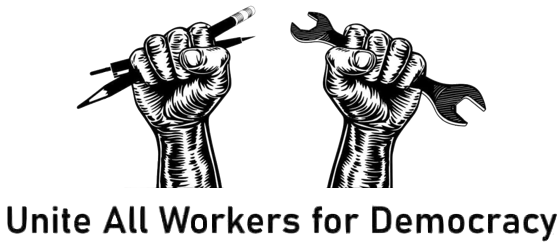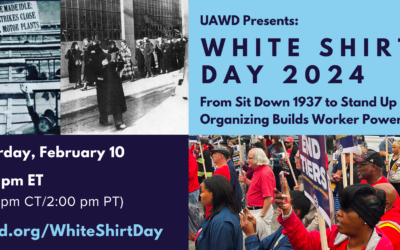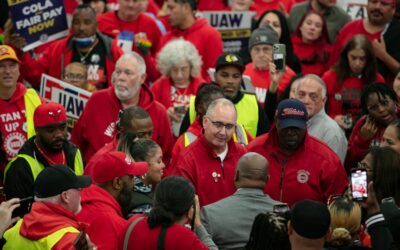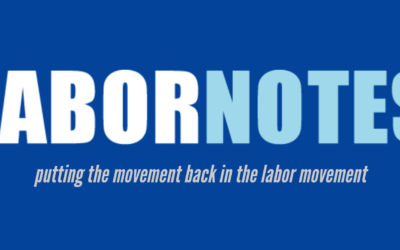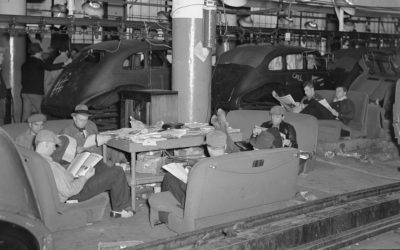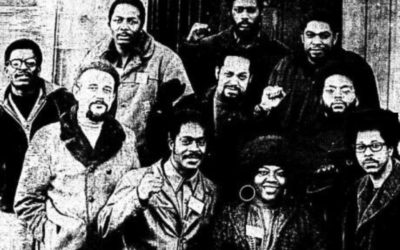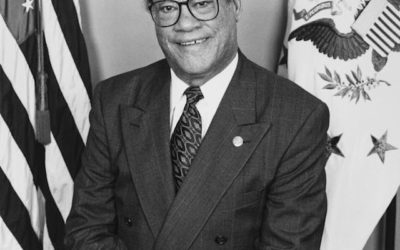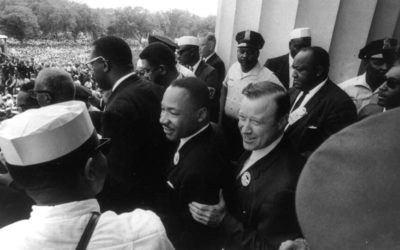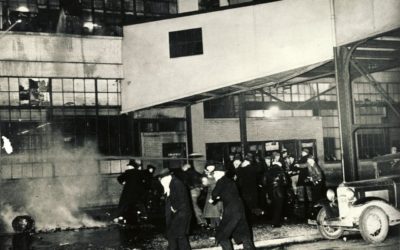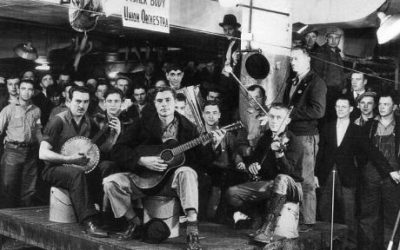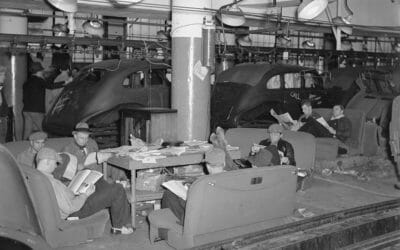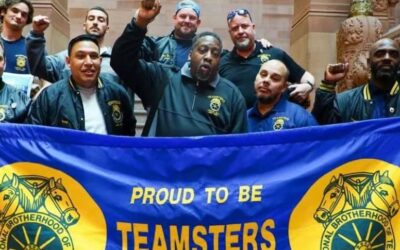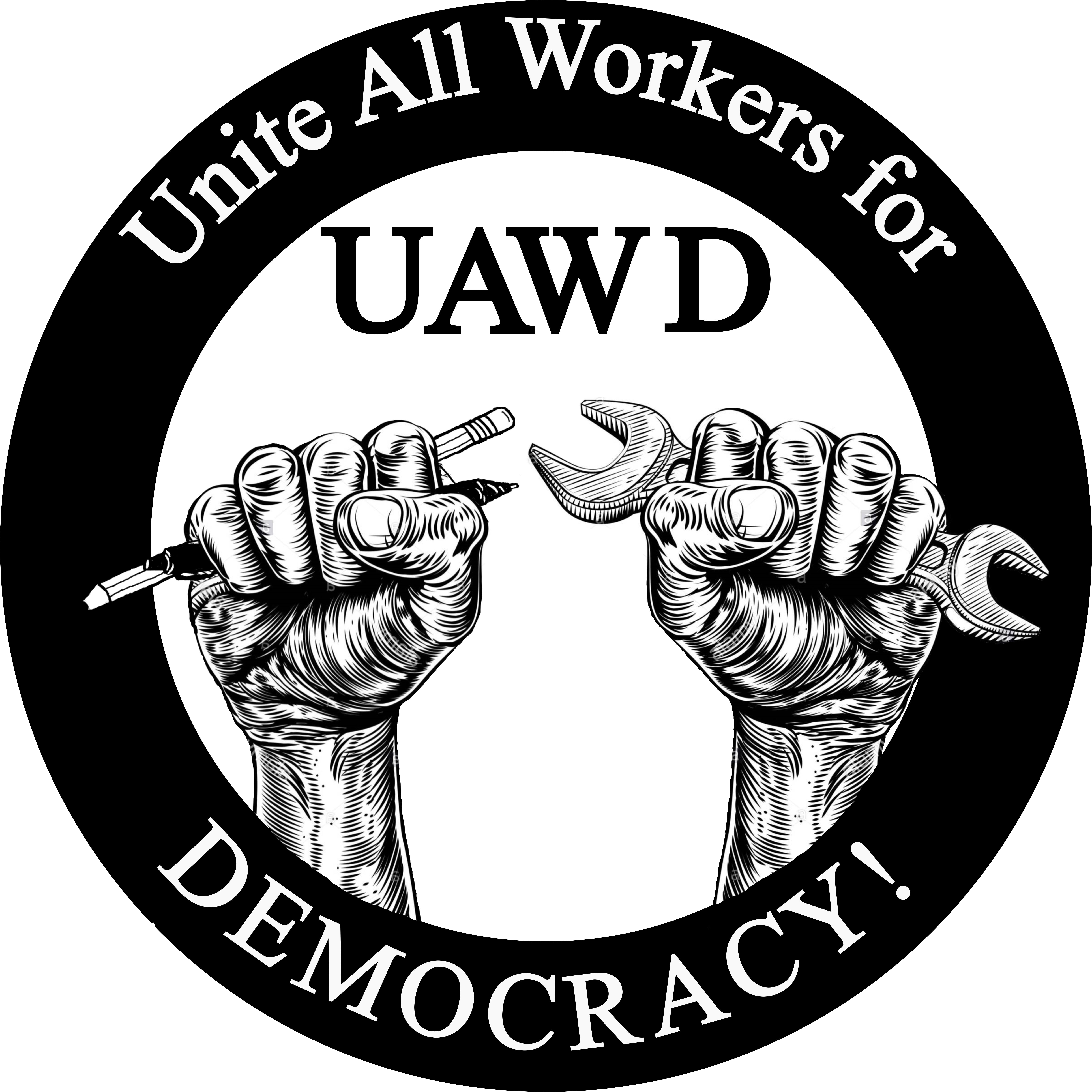Worker Resources
Our Worker Resources page has various educational materials that we believe are essential for the rank-and-file to better understand their role within the union, as well as to discern how and why the UAW finds itself in its current state.
UAW Accountability
UAW Constitution
As amended at the 37th UAW Constitutional Convention in Detroit, Michigan in June 2018.
UAW Monitor
Under the 2021 Consent Decree, the Monitor has the authority and duty to remove fraud, corruption, illegal behavior, dishonesty, and unethical practices from the UAW.
Union Democracy
The struggle for union democracy begins with ourselves. Learn from the Association for Union Democracy about your legal rights.
Our Legal Rights As Workers
What are the major laws affecting workers?
Here is a summary of the major laws affecting workers in the United States.
What is the National Labor Relations Act?
Passed in 1935 as part of the New Deal, the National Labor Relations Act (NLRA) gives workers certain legal rights, including the right to form unions, and requires employers to bargain with the union over wages, hours, and working conditions.
The National Labor Relations Board (NLRB) enforces this law. Read UAWD’s updates on the NLRB.
What are Weingarten rights?
The U.S. Supreme Court has ruled that
union‐represented employees have the
right to ask for a union representative
during questioning by a supervisor, security
personnel or manager if the answers to
those questions could reasonably result in
discipline or discharge. These rights are
called Weingarten rights.
If you are called to an interview of this
nature, you must tell the employer that you
want a union representative right before or
during the interview. The employer does
not have to remind you of this right.
If the employer refuses your request and
continues to question you, you can refuse to
answer. The employer may be guilty of
violating labor law and you should consult
with your union representative ASAP.
As soon as the employer contacts you to ask
questions about a matter that you think could
result in your discipline or discharge, request
union representation.
Here’s what to say to the employer to request
your union representative and preserve your
rights:
If this discussion could in any way lead to my being disciplined or terminated, or affect my personal working conditions, I respectfully request that my union representative, officer or steward be present at the meeting. Without representation, I choose not to answer any questions.
What are the LMRDA and OLMS?
The Labor-Management Reporting and Disclosure Act (LMRDA)—also known as the Landrum-Griffin Act—deals with the relationship between a union and its members. The LMRDA grants certain rights to union members and protects their interests by promoting democratic procedures within labor organizations.
The Act establishes a Bill of Rights for union members; reporting requirements for labor organizations, union officers and employees, employers, labor-relations consultants, and surety companies; standards for the regular election of union officers; and safeguards for protecting labor organization funds and assets.
The Office of Labor-Management Standards (OLMS) at the U.S. Department of Labor (DOL) is authorized by the LMRDA to administer and enforce standards that ensure basic standards of democracy and financial integrity in labor organizations representing employees in private industry.
Read UAWD’s updates on DOL.
What is OSHA?
With the Occupational Safety and Health Act of 1970, Congress created the Occupational Safety and Health Administration (OSHA) to ensure safe and healthful working conditions for workers by setting and enforcing standards and by providing training, outreach, education and assistance.
Read UAWD’s updates on OSHA.
UAW History
UAWD Commemorates the Sit Down Strike of 1937 on White Shirt Day 2024
UAWD hosted a special event over Zoom on White Shirt Day in remembrance of the UAW Flint sit-down strike of 1936 and 1937. On Saturday, February 10, members joined to learn about how organizing builds worker power, from the Sit Down Strike of 1937 to the Stand Up...
UAWD in the News: Union Reformers Made Labor History in 2023. They’re Just Getting Started.
Barry Eidlin writes for In These Times: None of what Fain’s administration has accomplished in its few short months in office would have been possible without the organizing that UAWD did first to win the right to vote, then to get the Members United slate elected....
UAWD in the News: The Ghost of Reuther Past
Harold Meyerson writes for the American Prospect: Like the Reutherites, Fain and his cohorts had to wrest control of the UAW from an incumbent regime, though the lines of this conflict did not, at first glance, seem to be drawn around political concerns. After a...
UAWD in Labor Notes: Big 3 Focus on Auto Parts Centers in Strike Prep
Lisa Xu (formerly Local 5118) writes for Labor Notes: [Bill] Bagwell, who was previously the chairman of Local 174 and is also an elected convention delegate, says he’s as excited as he’s ever been about the direction of the union. He was a member of the reform...
UAWD in In These Times: What Today’s Labor Reformers Can Learn From a Rank-and-File Coal Miners’ Victory 50 Years Ago
Steve Early writes for In These Times: Today, at a time when labor militants are again embracing a “rank-and-file strategy” to revitalize unions and change their leadership, the MFD’s unprecedented victory — and its turbulent aftermath — remains relevant and...
White Shirt Day and “The Birth of a Union”
White Shirt Day was started in 1948 by Sit-Down Striker Bert Christensen, as a way to remind the younger workers just what the veterans had gone through to win them health care, job security, paid vacations, and pensions. During the strike, GM cut off the heat in the...
UAW History: League of Revolutionary Black Workers Forced Change in the Auto Industry, UAW
Back in the 1960s, as the Civil Rights movement spread through American cities large and small and discussions of the use of Black Power multiplied, Detroit’s auto factories -- and within the UAW -- became the focus of protests by the Black working class. Read the...
‘Life of public service’: Longtime Latino congressman Esteban Torres dies at 91
Former Rep. Esteban Torres, a California Democrat who served eight terms in the House and built a legacy of public service focused on advancing Latino representation, died on Tuesday. He was 91. Before his political career, Torres served as an activist in his United...
The UAW leader who helped MLK tie organized labor to broader civil rights movement
Strassel says both King and Reuther saw connections between the civil rights and labor movements, including shared priorities on issues like right to work and fair wages. Reuther's support for King started at an early point in his career. “Reuther put the resources...
85 years ago today, Flint Sit-Down Strike started, forcing recognition of the UAW
Eighty-five years ago today, Flint autoworkers seized control of the General Motors body plant where they worked, refusing to leave for 44 days and forcing the company to recognize the United Auto Workers, a critical moment in the history of the organized labor...
85th Anniversary of the start of the Flint sit-down strike (1936-1937)
Today is the 85th anniversary of the start of the Flint Sitdown Strike! The fledgling union took on the biggest corporation in the world and won. It wasn't easy. There was plenty of drama. Importantly, the Michigan Governor used the national guard to prevent violence...
Video: UAWD Interview with UAW Icon Paul Schrade
UAW Icon Paul Schrade talks about the importance of democracy in the union.
JSTOR: The Flint Sit-Down Strike, From the Inside
This fall has brought a wave of strikes, with workers seeking raises and better working conditions. They’re following in a long tradition, and one of its key moments was the 1936-1937 sit-down strike by auto workers in Flint, Michigan. Testimonies from those strikers...
A New Force in American Labor: Academe
UAW Academic and autoworkers are forging a bond through the referendum vote.
UAWD in the news
UAWD in the News: No Union Democracy, No Union Revitalization
Chris Bohner writes for Jacobin: Are labor unions democratic, and does it even matter? The recent transformation of the United Auto Workers (UAW), led by newly elected president Shawn Fain and the rank-and-file caucus Unite All Workers for Democracy, has provoked new...
UAWD in the News: Union Reformers Made Labor History in 2023. They’re Just Getting Started.
Barry Eidlin writes for In These Times: None of what Fain’s administration has accomplished in its few short months in office would have been possible without the organizing that UAWD did first to win the right to vote, then to get the Members United slate elected....
UAWD in the News: “Solidarity Is the Most Powerful Word in Labor, and You’re Seeing It This Year”
Alex Press interviewed Anthony Rosario, an organizer with Teamsters Local 804 and Teamsters for a Democratic Union, for Jacobin. Rosario said: Corporations need to take a look at what’s happening. I know that they don’t care, but they have to know that the...
UAWD in the News: Direct Elections for Labor Leaders Make for More Militant Unions
Chris Bohner writes for Jacobin about how this year’s biggest contract victories have been won by unions in which members directly elect their leaders: "A robust democratic process certainly played a major role in the United Auto Workers (UAW) contract fight with the...
UAWD in the News: The UAW Has Had a Big Year. They’re Preparing for an Even Bigger One.
Alex Press writes for Jacobin about how the UAW launched a historic strike at the Big Three in 2023—and how 2024 might be an even bigger year: The United Auto Workers (UAW) has had a historic year. Coming into 2023, the union had held its first-ever direct elections...
UAWD in the Detroit News: Approved UAW deals mark reshaped union
Breana Noble, Kalea Hall, and Hayley Harding write for The Detroit News: Chris Budnick, an 11-year employee at Ford working at the Kentucky Truck plant, voted yes on the deal, even though he would have liked to see a larger wage increase sooner and health care...
UAWD in the News: After a Long Defeat, Labor Is Rising from the Ashes
Stephen Franklin writes for In These Times: The recently elected heads of those two unions proclaimed unprecedented and seemingly risky contract demands because they had pitched themselves to their rank and file as new voices that would shake up their unions. This was...
UAWD in the News: The UAW Won Major Concessions from Each of the Big Three. Is it Enough?
Mindy Isser writes for In These Times: In 2008, amid the nation’s economic collapse, the UAW agreed to major concessions during contract negotiations, and it has struggled to fully recover. The union was also hampered by corruption, with more than a dozen officials...
UAWD in the News: GM workers at multiple plants are rejecting a new ‘record’ deal. Here’s why
Kalea Hall and Breana Noble write for the Detroit News: Workers at Ford’s Kentucky Truck Plant this week rejected the agreement, with 54.5% voting no. Chris Budnick, 38, of La Grange, Kentucky, a stamping quality inspector at the plant, originally planned to vote no....
UAWD in the News: The UAW’s Deals With the Big Three Automakers Are Being Debated on the Shop Floor
Keith Brower Brown writes for Jacobin: The UAWD caucus organized “speak out” Zoom meetings for Big Three workers, which brought hundreds together. At a follow-up meeting, autoworkers in the caucus passed a resolution to “celebrate the record gains” while remaining...
UAWD in the News: The UAW Has Won a Historic Victory. So What Comes Next?
John Nichols writes for The Nation: When the United Auto Workers reached a tentative agreement on October 30 with General Motors, the last of the Big Three automakers targeted by this fall’s 46-day strike, the union’s president, Shawn Fain, declared, “The result is...
UAWD in the News: Fain promises more gains for UAW in 2028 as ratification nears
Michael Martinez writes for Automotive News: While the union's tentative contract with Ford appeared easily headed for ratification, early voting was more mixed among workers at GM and Stellantis. Hourly employees at Flint Assembly in Michigan, one of GM's largest...
UAWD in Labor Notes: IATSE Members Launch Reform Caucus as Hollywood Strikes Wrap
Lisa Xu writes for Labor Notes: Dissatisfied with their union’s leadership and direction, a group of members of the International Alliance of Theatrical Stage Employees (IATSE) is launching a reform caucus called CREW, or the Caucus of Rank-and-File Entertainment...
UAWD in the News: The Ghost of Reuther Past
Harold Meyerson writes for the American Prospect: Like the Reutherites, Fain and his cohorts had to wrest control of the UAW from an incumbent regime, though the lines of this conflict did not, at first glance, seem to be drawn around political concerns. After a...
